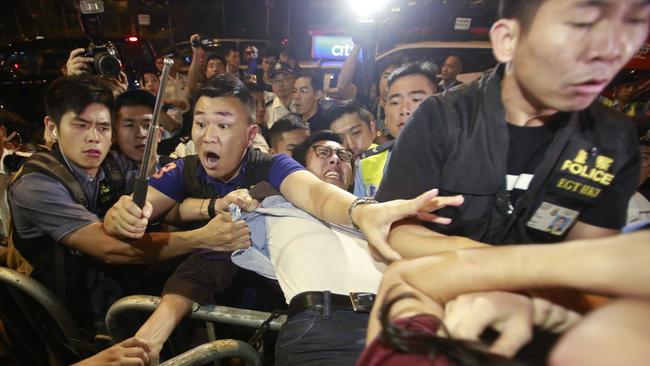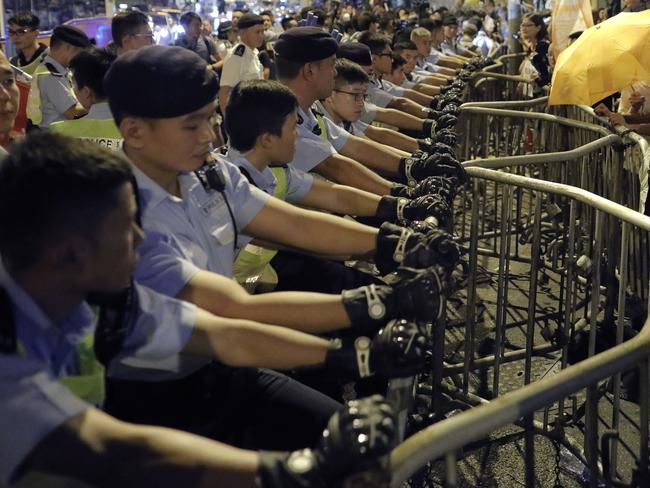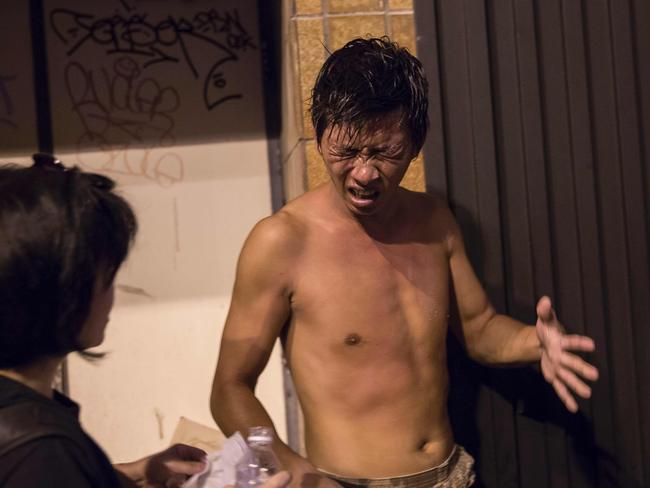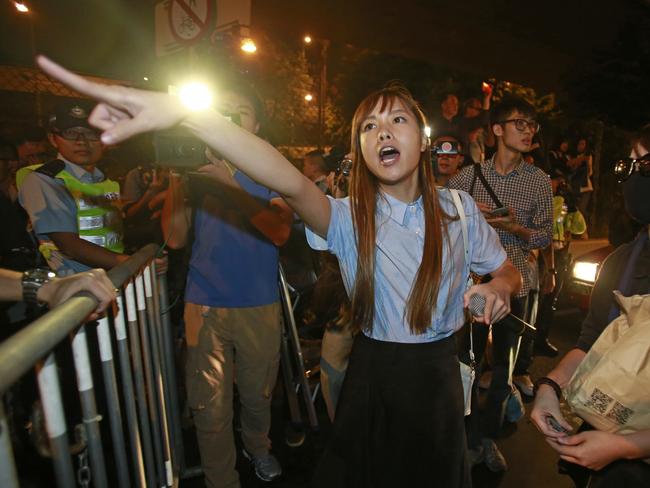Protesters in Hong Kong clash with police after Chinese threats
PROTESTERS have clashed with police in Hong Kong after thousands demonstrated against Chinese moves to crackdown on pro-independence advocates.

THOUSANDS of protesters marched in Hong Kong on Sunday, demanding that China’s central government stay out of a political dispute in the southern Chinese city after Beijing indicated that it would intervene to deter pro-independence advocates.
The dispute centres on a provocative display of anti-China sentiment by two newly elected pro-independence Hong Kong politicians at their swearing-in ceremony last month.
China’s top legislative panel said that Beijing must intervene to deter advocates of independence for Hong Kong, calling their actions a threat to national security.

The Standing Committee of China’s rubberstamp legislature said in a statement that Beijing could not afford to do nothing in the face of challenges in Hong Kong to China’s authority, the official Xinhua News Agency reported late on Saturday.
On Sunday, thousands of people marched in downtown Hong Kong to voice their opposition to China’s plan to step in, saying the move would undermine the city’s considerable autonomy and independent judiciary.
Several thousand people gathered in the evening to protest outside Beijing’s liaison office. Police used pepper spray on demonstrators amid some scuffling. Some protesters wore face masks and hoisted open umbrellas in the air — symbols that were reminiscent of student-led pro-democracy demonstrations in 2014 that blocked key Hong Kong streets and attracted global attention.

Helmeted police officers with shields stood in several rows, creating a blockade against the protesters. “Open the road! Open the road!” the demonstrators chanted, as police warned them not to charge.
Demonstrators held signs reading “Defend the rule of law” and calling for the city’s Beijing-backed chief executive, Leung Chun-ying, to step down. Some said that if China’s top legislative panel issued its own interpretation on oath-taking, it would effectively undermine a Hong Kong court’s ongoing review of the case.
“In (the) long run, that will damage our confidence in the court,” said Alvin Yeung, a legislator. “That will, in the long run, damage the international investors’ (confidence) in Hong Kong’s stability and the rule of law, and of course how our court functions.” The legislative panel in Beijing said the words and actions of the two Hong Kong politicians — Sixtus Leung and Yau Wai-ching — “posed a grave threat to national sovereignty and security,” Xinhua reported.

If such a situation were to persist, the Standing Committee said, it would hurt the interests of Hong Kong’s residents and China’s progress. “The central government cannot sit idly and do nothing,” it said.
The statement followed discussions by the committee on issuing an interpretation of an article in Hong Kong’s constitution, known as the Basic Law, that covers oaths taken by politicians.
Leung, 30, and Yau, 25, who are from the radical Youngspiration party, altered their oaths to insert a disparaging Japanese term for China. Displaying a flag reading “Hong Kong is not China,” they vowed to defend the “Hong Kong nation.” Leung crossed his fingers, while Yau used the F-word in her pledge. Their oaths were ruled invalid, but attempts at a do-over have resulted in mayhem in the legislature’s weekly sessions.
Saturday’s comments indicated that the Standing Committee intended to use its interpretation of the article to send a strong message against separatism — and could ultimately lead to the democratically elected politicians’ disqualification from office.
Such an outcome would be favourable to China’s Communist leaders, who are alarmed by the former British colony’s burgeoning independence movement, but is also likely to plunge their troubled relationship into fresh turmoil. Maria Tam, a Hong Kong deputy to the National People’s Congress, told reporters in Beijing on Saturday that the Standing Committee has the “final say” on the dispute, and that Hong Kong’s highest court would accept the panel’s interpretation as binding.



